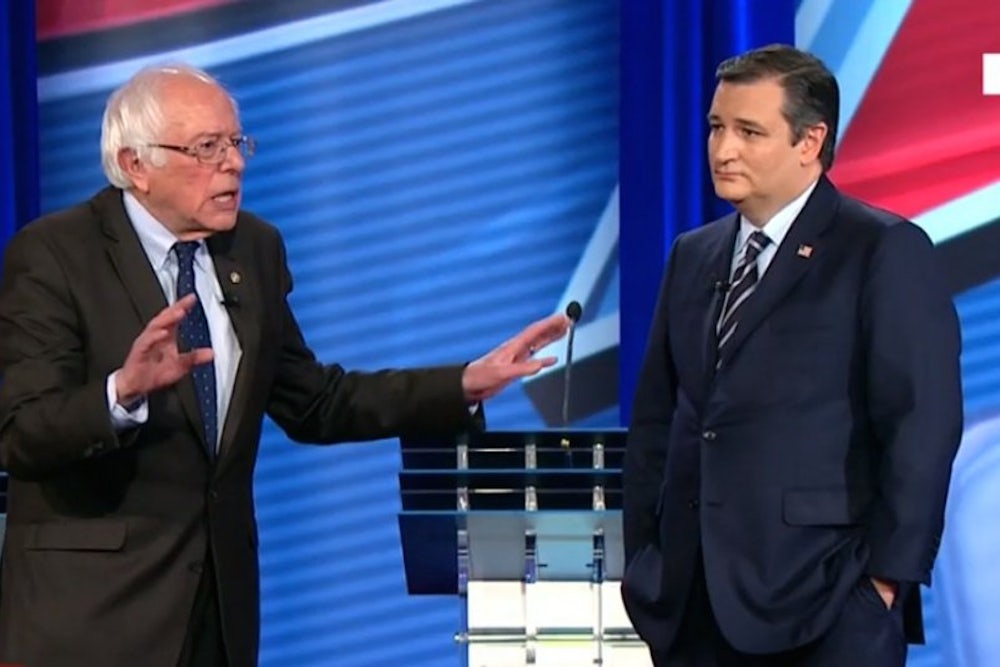CNN advertised Wednesday night’s Cruz-Bernie Sanders showdown as a debate about the GOP’s tax plan. And it was, superficially, but a deeper conflict revealed itself, pitting reactionary conservatism against democratic socialism. Cruz is an accomplished culture warrior, but he proved that this is a conflict he is ill-prepared to navigate.
Central to the ideological division between Sanders and Cruz is the concept of responsibility: what we do or do not owe our neighbors. For Cruz, the answer appears to be “not much.” Sanders, however, believes that citizenship in a civic society bestows some responsibility to protect our collective welfare. Raising taxes, for example, is not an attack on an individual, but a bid to ensure that individual’s access to public services.
Conservatives counter that the free market is capable of providing for everyone. But when a George Washington University student asked Cruz how slashing corporate taxes helped her, as she labored under the burden of student debt, he replied, “So I understand that’s hard. You asked why cut the corporate taxes for a young person? I’ll give you the single best reason. Because when you graduate, you want a job.”
It’s no answer at all. Cruz couldn’t address her principle burden—too much student debt—and instead only dangled a carrot of future employment. Which, as young adults are now acutely aware, means little. Cutting corporate taxes doesn’t guarantee living wages or good health insurance or even employment itself; it is, however, a sure way to bloat the bank accounts of corporate executives.
And that prospect isn’t just a left-wing bogeyman. The nonpartisan Tax Policy Center reports that the GOP’s tax plan would indeed mostly benefit the wealthy: “Taxes would drop at all income levels in 2017, but most savings would go to the highest-income households. Federal revenues would fall by $3.1 trillion over the first decade before accounting for added interest costs and macroeconomic effects.”
Cruz doesn’t have much to offer the average debt-ridden adult; only attacks on the estate tax, which would again only benefit the wealthy, and on campaign finance reform, which would cement the very Washington corruption he claims to oppose.
